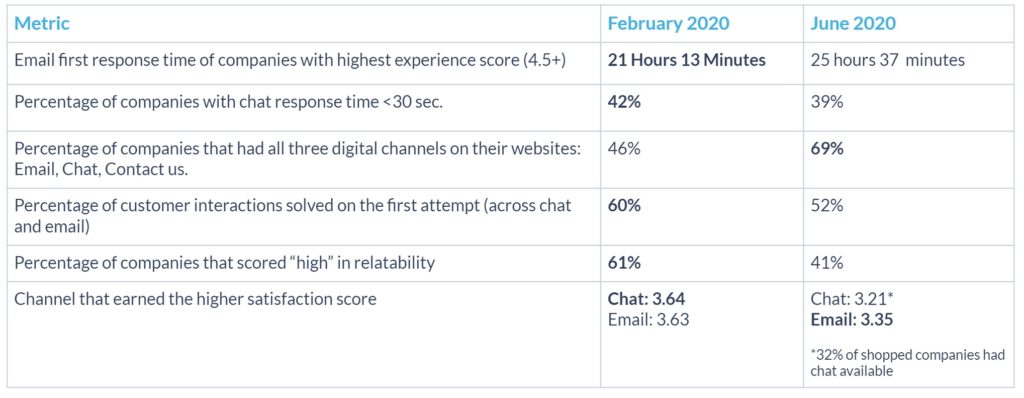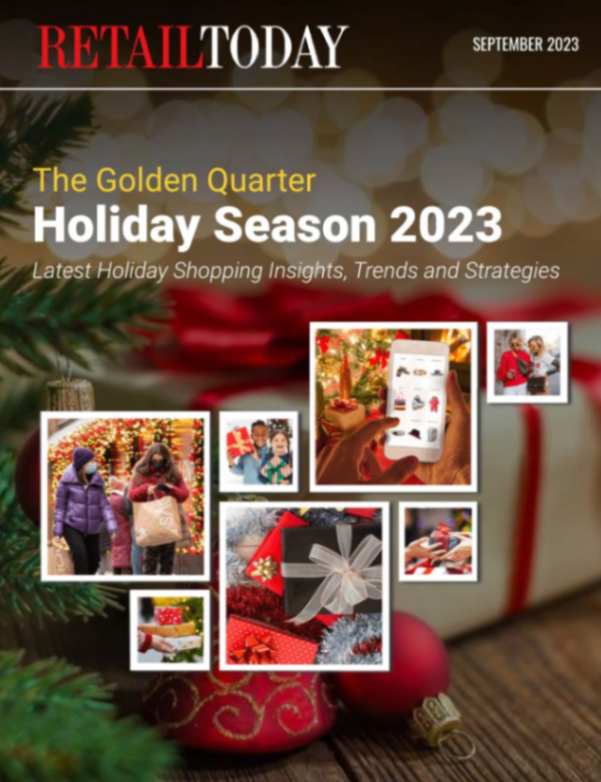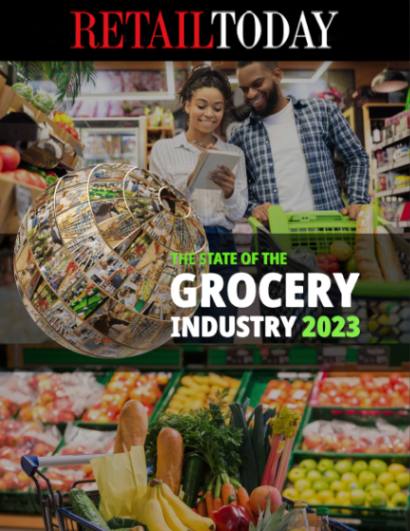Twenty-seven percent of consumers surveyed by Simplr in the company’s June 2020 State of CX study said customer service wait times on digital channels during COVID-19 have caused their brand loyalty to waver. The comprehensive study of 750+ brands and 500 online shoppers found a seven percent increase in wait times on digital channels between February and June among top-performing brands. In addition, just 41 percent scored high when it comes to their ability to go above and beyond for their customers, signaling the challenges brands are facing as they transition to digital CX in the face of a 76 percent rise in YoY online shopping.
Customer service responsiveness: before, and during, the pandemic

While online shoppers may have been forgiving of less-than-ideal customer service levels at the outset of the pandemic, five months into the “new normal” the data implies that consumers have returned to their previous expectation levels. In Simplr’s June study, 72 percent of online customers said that response time was just as, or more, important than before the pandemic.
The accelerated shift to online shopping has led retailers to offer more digital channels to meet their customers where they want to interact. It is not surprising that the number of brands using three digital channels (chat, email, contact us) increased 50 percent from February to June (46 percent in February; 69 percent in June). However, increased activation of these channels did not translate into better responsiveness.
“Turning a channel like chat ‘on’ means retailers have more staffing requirements to meet the needs of people shopping online 24/7,” said Eng Tan, CEO and founder of Simplr. “While most retailers strive to offer great customer service, many struggle with having their team working at 12 midnight on a Friday.”
Email Response Highlights:
- The overall average email response time for all companies in the study was 48 hours.
- The overall average email response time of top-performing companies was 25.5 hours.
Chat Response Highlights:
- Brands able to respond to customer service chat requests in less than 30 seconds dropped by 7 percent from February to June (42 percent vs. 39 percent).
- 94 percent of customers who received chat responses in under 60 seconds said they were “Satisfied” or “Very satisfied” with their experience.
- 92 percent of the chat interactions that were rated as “Very Poor,” had wait times that exceeded 5 minutes.
- The study, conducted during the hours of 5pm to midnight EST, found only 32 percent of the companies had a live chat bubble available. Thirty-nine percent used their chat bubbles exclusively to redirect visitors to an email submission, which can lead to consumer frustration.
Customer service reliability during the pandemic
The ability to reliably resolve customer challenges and questions is another hallmark of customer service excellence. However, fewer companies were able to do so on the first attempt in June 2020 vs February 2020.
- In June, just over half (52 percent) of interactions across email and chat were solved on the first attempt, a 13 percent decrease from February.
- Of all the companies that had earned a 4.5/5 overall satisfaction score, 73 percent solved email and chat tickets on the first attempt.
Customer Service Relatability During COVID-19
AI-driven chatbots are making significant strides in providing real-time information to solve simple customer concerns. However, it remains important to the consumer experience that a company brings empathy and humanity to each customer interaction.
For this study, Simplr created a Relatability Score based on responses to 10 questions around the personalization, kindness, and above-and-beyond nature of responses. Overall, only 41 percent of companies in the study earned a “high” relatability score. When Relatability Score results are isolated for chat in particular, this number drops even lower, to 36 percent.
Overall results for companies ranked for their relatability:
- High: 41 percent
- Medium: 34 percent
- Low: 25 percent
“Rock solid, reliable and friendly customer service during challenging times like the unprecedented one caused by the pandemic can delight our customers and provide a highly positive endorsement for many of our brands,” said Sarah Caplan, Vice President of E-Commerce at Steve Madden. “This is why we put an emphasis on great customer service at Steve Madden and have partners like Simplr to help us accomplish this.”





